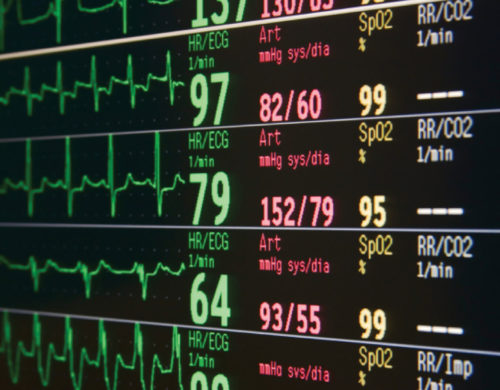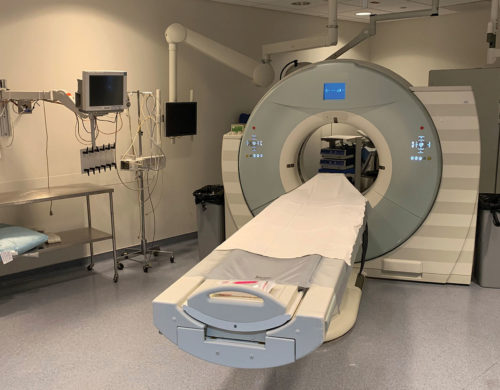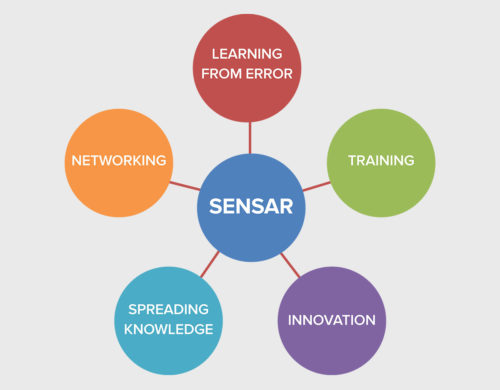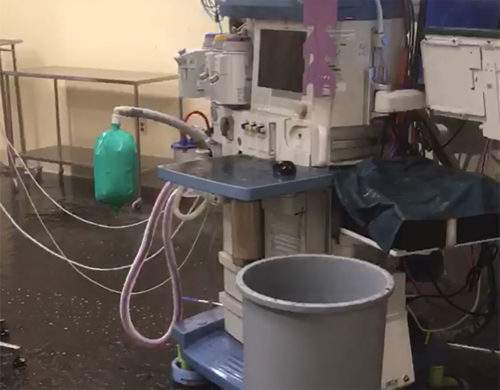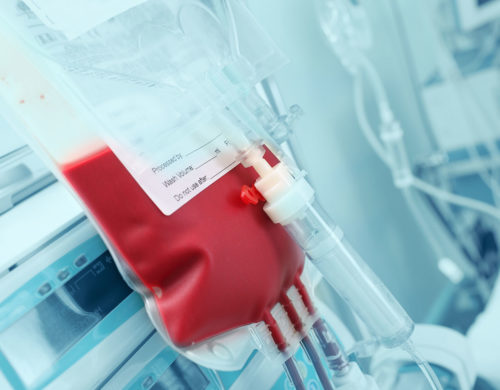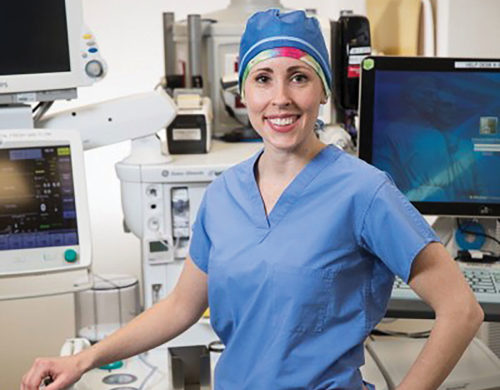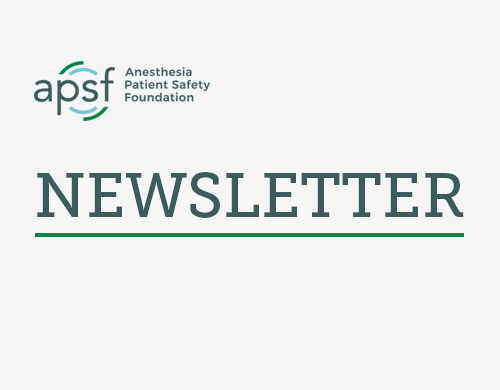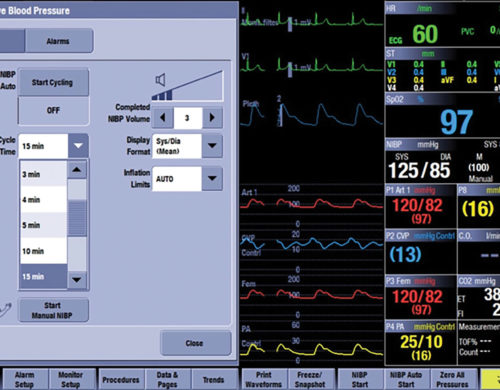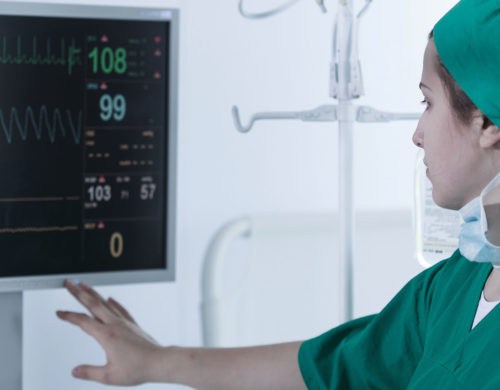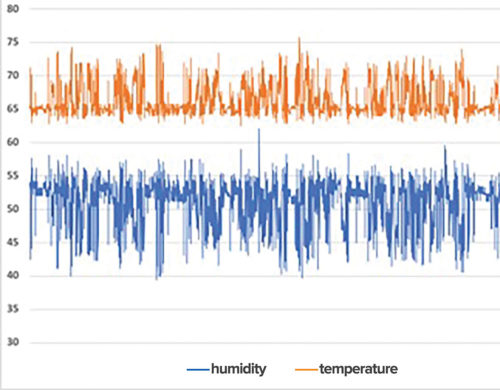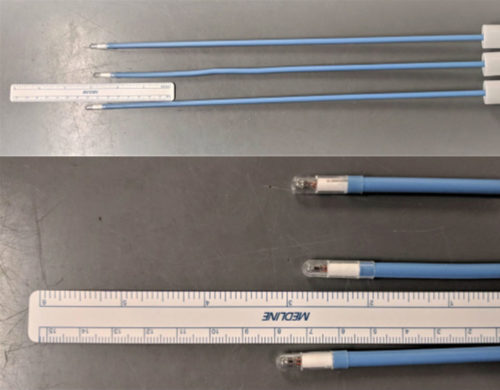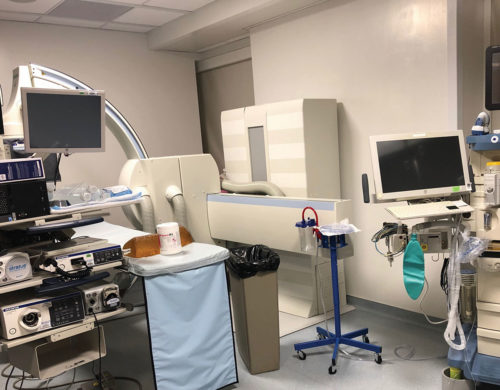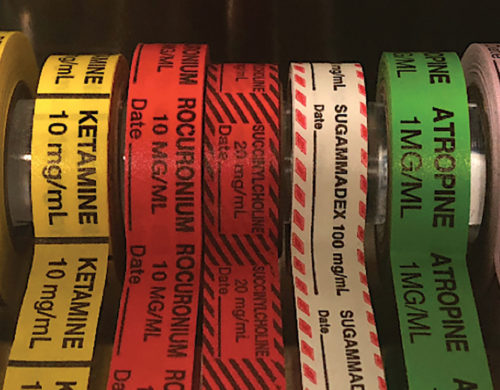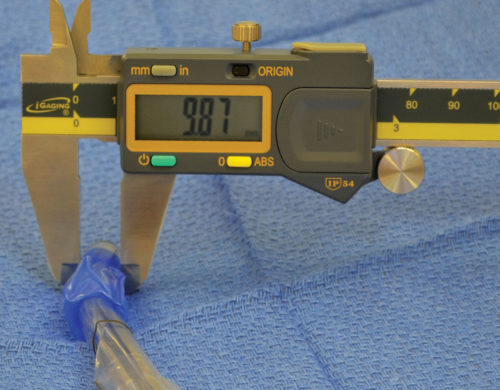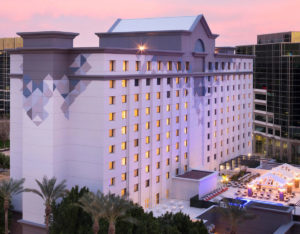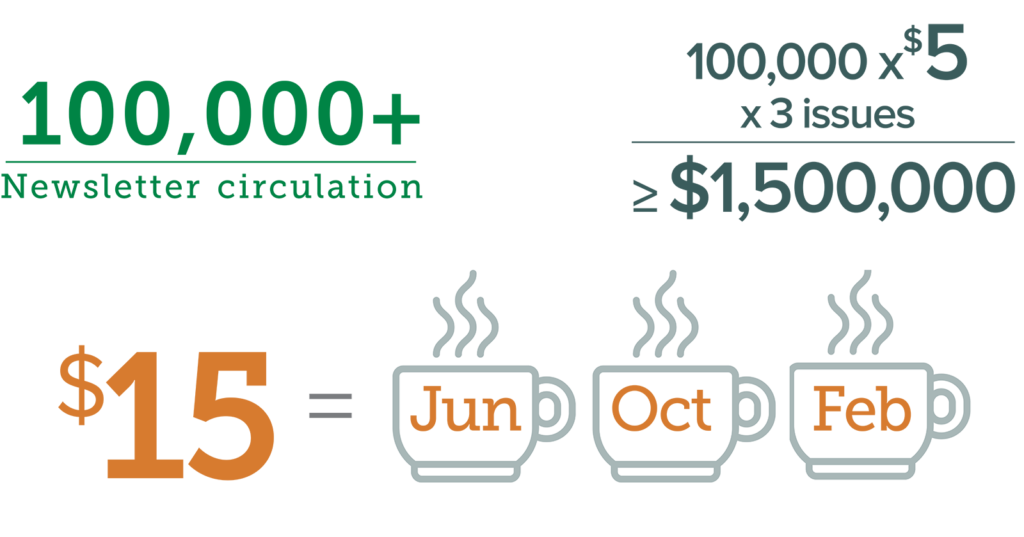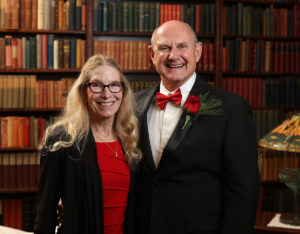The Official Journal of the Anesthesia Patient Safety Foundation
The Anesthesia Patient Safety Foundation Newsletter is the official publication of the nonprofit Anesthesia Patient Safety Foundation and is published three times per year in Wilmington, Delaware. Individual and corporations may subscribe for $100. If multiple copies of the APSF Newsletter are needed, please contact: [email protected]. Contributions to the Foundation are tax-deductible. Copyright, Anesthesia Patient Safety Foundation, 2019.
The opinions expressed in this Newsletter are not necessarily those of the Anesthesia Patient Safety Foundation. The APSF neither writes nor promulgates standards, and the opinions expressed herein should not be construed to constitute practice standards or practice parameters. Validity of opinions presented, drug dosages, accuracy, and completeness of content are not guaranteed by the APSF.
APSF Executive Committee 2019:
Mark A. Warner, MD, President, Rochester, MN; Daniel J. Cole, MD, APSF Vice President, Los Angeles, CA; Matthew B. Weinger, MD, Secretary, Nashville, TN; Douglas A. Bartlett, APSF Treasurer, Boulder, CO; Maria van Pelt, CRNA, PhD, Director At-Large, Boston, MA.
APSF Newsletter Editorial Board 2019:
Steven B. Greenberg, MD, Editor-in-Chief, Chicago, IL; Edward A. Bittner, MD, PhD, Associate Editor, Boston, MA; Jennifer M. Banayan, MD, Associate Editor, Chicago, IL; Meghan Lane-Fall, MD, Assistant Editor, Philadelphia, PA; Trygve Armour, MD, Rochester, MN; JW Beard, MD, Wilmette, IL; Joan M. Christie, MD, St. Petersberg, FL; Heather Colombano, MD, Winston-Salem, NC; Jan Ehrenwerth, MD, New Haven, CT; John H. Eichhorn, MD, San Jose, CA; Nikolaus Gravenstein, MD, Gainesville, FL; Joshua Lea, CRNA, Boston, MA; Bommy Hong Mershon, MD, Baltimore, MD; Tricia A. Meyer, PharmD, Temple, TX; Glenn S. Murphy, MD, Chicago, IL; Brian Thomas, JD, Kansas City, MO; Jeffrey S. Vender, MD, Winnetka, IL; Wilson Somerville, PhD, Editorial Assistant, Winston-Salem, NC. Please see the links of international editors at https://www.apsf.org/wp-content/uploads/newsletter/APSF-International-Editors.pdf
Address all general, contributor, and subscription correspondence to:
Stacey Maxwell, Administrator
Anesthesia Patient Safety Foundation
Charlton 1-145
Mayo Clinic
200 1st Street SW
Rochester, MN 55905
[email protected]
Address Newsletter editorial comments, questions, letters, and suggestions to:
Steven B. Greenberg, MD
Editor-in-Chief, APSF Newsletter
[email protected]
Edward A. Bittner, MD, PhD
Associate Editor, APSF Newsletter
[email protected]
Jennifer M. Banayan, MD
Associate Editor, APSF Newsletter
[email protected]
Meghan Lane-Fall, MD
Assistant Editor, APSF Newsletter
[email protected]
Send contributions to:
Anesthesia Patient Safety Foundation
Charlton 1-145
Mayo Clinic
200 1st St SW
Rochester, MN 55905, U.S.A.
Or please donate online at www.apsf.org/donate/.


 Issue PDF
Issue PDF